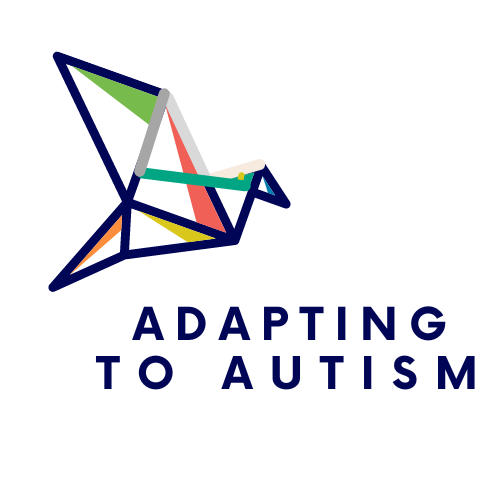Learn About Your Sensory Profile
Taste, touch, smell, sight, and sound. These 5 words encompass your sensory experience in the world. How you feel, what you think, how you respond, and how you are able to operate are all heavily influenced by the way your body interprets sensory information. As an Autistic adult you have probably found hacks and cheat codes to make life at least bearable for the most part, but it can always be improved upon. Take each one of your senses and write out what you are avoiding, seeking, and sensitive to for that category. Use the chart below as an example.
|
Sense |
Avoiding |
Seeking |
Sensitive to |
|
Taste |
Spicy, sour, extremes, honeydew melons, fishy, eggy |
Sweet, cinnamon, flat soda, mild seasoning |
Salt, sliminess |
|
Touch |
Light tickling touch, the shower curtain during a shower |
Heavy blankets for sleep, soft down blankets |
Unsolicited unexpected touch, scratchy clothing |
|
Smell |
Rancid trash smells, lavender, body odor, dog breath, soapy smells |
Sandalwood, oud, tobacco, rose, jasmine, amber |
Cigarettes, alcohol, ethanol, markers, “sick” breath |
|
Sight |
Bright white light, direct sunlight |
Warm light, low light, pimple popping, visual ASMR videos |
Florescent lights, graphic violence |
|
Sound |
Slamming doors, yelling |
Music with bass and soothing melodies |
Sudden loud noises, dog licking paws, High pitched whining |
After you fill out the chart, be expressive with your close people about what you are avoiding, incorporate more of what you are seeking, and be aware of what you are sensitive to and determine how you can limit the presence of these things. Gather more information about the multiple environments you frequent using the assessing for accommodations sheets and start creating your accommodations.
Create Accommodations For Yourself And Make Tool Kits
Look at your triggers and soothers that occur daily, when you are out of the house, and in what situations. Decide what has worked in the past, what you think might work in the future for you to try, and what absolutely doesn’t work so you can leave it out. Accommodations are only good if they actually help you. Adding stuff that other people put in their kits that you don’t have a specific use for, will just be taking up valuable space in your holder. Use these tool kit sheets for some ideas and a place to write down all the items you are thinking of using. Read this blog for more information on how to fill your tool kits.
Pick An Effective Therapist
Therapy with a neurodivergent affirming therapist (who are often ND themselves) is a game changing experience. You don’t need therapy just for being Autistic, rather, having someone validate your experience and the trauma of being expected to survive in a world not built for your neurotype can help. Seek individual therapy with a neurodiversity affirming therapist to help you work through social differences with goal of finding your social comfort zone and fit while exploring your social wants and needs. Therapy can help with self discovery and self acceptance. Find a Neuro affirming therapist on www.NDtherapists.com, a black therapist on www.therapyforblackgirls.com, or an inclusive or queer affirming therapist on www.inclusivetherapists.com.
Therapy should include:
-Exploring your executive functions and helping yourself through daily tasks by utilizing your strengths and systemizing your weaknesses.
-Tackling internalized ableism in looking at how it shows up in every place in your life.
-If you’re a parent, figuring out how to parent as an Autistic adult with potentially Autistic children.
-Modifying all parts of your life so that they fit who you are and what you need right now and worrying about the future in the future.
Learn Real Self Acceptance And Build Community
Now you know what your physical body needs, you are accommodating yourself, you have help recognizing what your mental health needs are, and you are exploring solutions to issues as they arise. Good for you! Now you can enter the maintenance phase of change by building a lasting community predicated on self acceptance and living authentically.
- Foster community for yourself by connecting with or reading about other Autistic individuals via Instagram, tik tok, Reddit or books, movies, TV shows.
-Find friends through shared hobbies. Table top games, book clubs, cosplay groups, and joining fandoms are great ways to enjoy your hobbies alongside others who enjoy it too giving the opportunity for connection that can lead to friendship. Give yourself chances to have multiple repeated touchpoints with others who you think you could vibe with. Since Autistic relationships tend to be more of a slow burn than an instant igniting flame, giving yourself time for your awesomeness to hook aligned people into your social circle can be a crucial step to take.
-Prune away people who don’t understand who you fundamentally are, nor do they want to. Willful ignorance grants them a free ticket out of your life.
-Your experience is your experience and should be taken as fact by others as you are the expert on yourself. If you tell them something is bothering you and you aren’t comfortable, it is not the time to debate if how you are experiencing the world is valid. It. Is. Valid. Full stop.
The goal in living well as an Autistic adult is not fitting into a specific mold, but existing in authenticity and feeling good about life in general. Environmental factors and life situations will always happen but now you have a foundation that will help you roll with what comes, instead of imploding into a self deprecating puddle of humanness.

